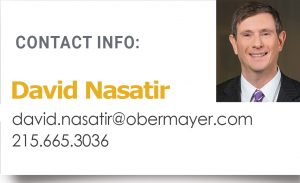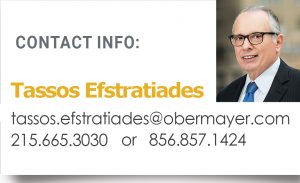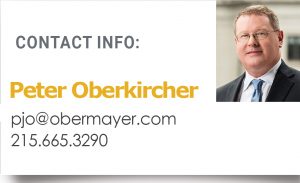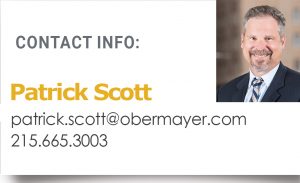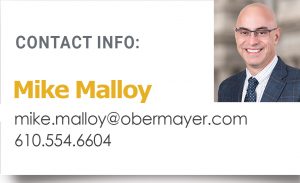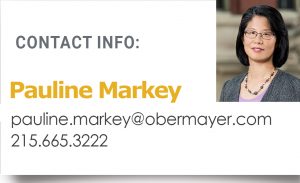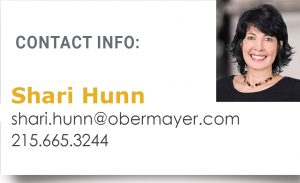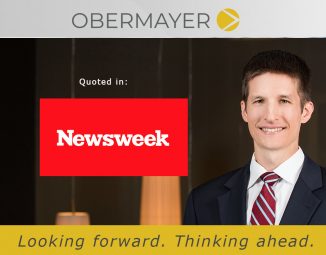New COVID-19 Relief Bill – What Business Owners Need To Know
Congress recently passed a bi-partisan COVID-19 Relief Bill (“Bill”) set to bring another round of stimulus to the country’s sluggish economy. Although the President has objected to the Bill, it is anticipated that it will be enacted in substantially similar form as the version passed by Congress.
The Bill includes important provisions that will affect business owners, which include a new Paycheck Protection Program Second Draw Loans, an extension of the moratorium on residential evictions, and certain business tax provisions.
PAYCHECK PROTECTION PROGRAM – SECOND DRAW LOANS
The new PPP Second Draw loans give eligible businesses, non-profit organizations (now including certain 501(c)(6) organizations), housing cooperatives, veterans organizations, self-employed individuals, sole proprietorships, independent contractors and small agricultural cooperatives, a chance to apply for a second loan from the Paycheck Protection Program (“PPP Second Draw Loan”).
Some of the rules have changed. To be eligible, an entity must have less than 300 employees; and be able to demonstrate that it suffered at least a 25% reduction in gross receipts in Q1, Q2, or Q3 of 2020, over the same quarter in 2019. For loan applications submitted on or after January 1, 2021, eligible entities can use gross receipts in Q4 of 2020, as compared to Q4 of 2019, to demonstrate the requisite 25% reduction. If an entity suffers at least a 25% reduction in gross receipts in any quarter in 2020 as compared to the same quarter in 2019, it is likely eligible for a PPP Second Draw Loan. If an entity already received a PPP loan, it must show that it used or will use the full amount of the first PPP loan. Certain types of companies, like lobbyists and political companies, as well as companies owned or influenced by China are ineligible.
For most businesses, loan amounts are 2.5 times the average total monthly payroll paid by the eligible entity during either the 1-year period before the date on which the loan is made, or calendar year 2019. Businesses falling under the NAICS 72 code, which consists of hotels and hospitality businesses, can use 3.5 as the multiplier when calculating the maximum loan amount. All Second Draw loans are capped at $2,000,000.
A simplified, one-page application process will be made available for borrowers whose PPP loan amounts are $150,000 or less.
Congress has also added some additional “forgiveness” categories. Money used for eligible payroll, rent, utilities and mortgage expenses were already forgivable under the CARES Act. Now, in addition to those categories, loan proceeds used for the following categories may also be forgiven:
- Covered Supplier Costs – an expenditure to a supplier of goods for the supply of goods that are essential to the operations of the borrower at the time the expenditure was made, and made pursuant to a contract or purchase order.
- Covered Worker Protection Expenditure – an operating or capital expenditure to facilitate the adaption of the business activities of the borrower to comply with CDC and other official health guidelines. The law gives examples, like expenditures on drive-through window facilities; indoor, outdoor or combined air or air pressure ventilation or filtration system; and on-site or off-site COVID screening.
- Covered Operations Expenditure – a payment for any business software or cloud computing service that facilitates business operations, product or service delivery, the processing, payment, or tracking of payroll expenditures, human resources, sales and billing functions, or accounting or tracking of supplies, inventory, records and expenses.
- Covered Property Damage Cost – a cost related to property damage and vandalism or looting due to public disturbances that occurred during 2020 that was not covered by insurance or other compensation.
Importantly, the Bill clarifies that borrowers of a PPP loan and a PPP Second Draw loan may, for federal income tax purposes, deduct business expenses paid with the proceeds of a PPP loan or a PPP Second Draw loan that is later forgiven. This clarification reverses the position the IRS has publicly taken on this issue. A similar clarification was included for certain loans provided by the CARES Act, such as the emergency EIDL grants.
MORATORIUM ON RESIDENTIAL EVICTIONS
In addition to the stimulus payments, in order to boost efforts to slow the spread of COVID-19, the Bill (based upon an order from the CDC) extended the temporary halt in residential evictions for “covered persons” through January 31, 2021. A covered person is a residential tenant who declares under penalty of perjury that if evicted, they would, among other things, likely become homeless or would be forced to live in a communal living arrangement. The extension of the eviction moratorium is not intended to: (a) prevent a landlord from starting an eviction proceeding, provided that the actual eviction does not take place prior to January 31, 2021; (b) release any tenant of their obligation to pay rent and perform their other obligations under their lease; or (c) prevent a landlord from disputing the veracity of the tenant’s declaration in court.
The Bill applies to states that do not have in place a temporary ban on residential evictions that provides the same or a greater level of public protection. Pennsylvania’s eviction ban expired on August 31, 2020, so the extension under the Bill applies to Pennsylvanians. New Jersey currently has a more stringent moratorium as the tenant does not have to prove that they are a “covered” person under the New Jersey order. New Jersey’s order shall expire no later than two months after the end of the pandemic or when Governor Murphy otherwise revokes his order, if earlier.
OTHER BUSINESS TAX PROVISIONS
The Bill extends the refundable payroll tax credit provided by the Families First Coronavirus Response Act until March 31, 2021 (it was scheduled to expire on December 31, 2020). This program provides small and midsized employers with refundable tax credits. The program is designed to reimburse employers for 100% of the costs of providing sick and family leave wages to their employees for COVID-19 related leave.
The Bill also extends the due date of payroll taxes deferred under the memorandum issued by the President in August, 2020. The memorandum allowed employers to defer the withholding of their employees’ share of social security taxes from September 1, 2020 through December 31, 2020. Under the memorandum, employers are required to recoup the deferred taxes through increased employee withholding from January 1, 2021 through April 1, 2021 so that the employers would be able to remit the unpaid taxes by May 1, 2021. With the extended due date of December 31, 2021, the increased withholding may be delayed until September 1, 2021.
If this Bill becomes law, these provisions will provide much needed assistances to business owners nationwide to weather the relentless COVID-19 pandemic. For more information on the PPP program and the forgiveness application process, residential evictions, and business tax provisions please contact one of the members of our experienced COVID-19 Response Team listed below.
This alert is intended for general informational purposes only, and you are urged to consult your own attorney concerning your situation and specific legal questions you have. We are fully operational during this pandemic and stand ready to assist as you navigate this ongoing and developing COVID-19 situation.

